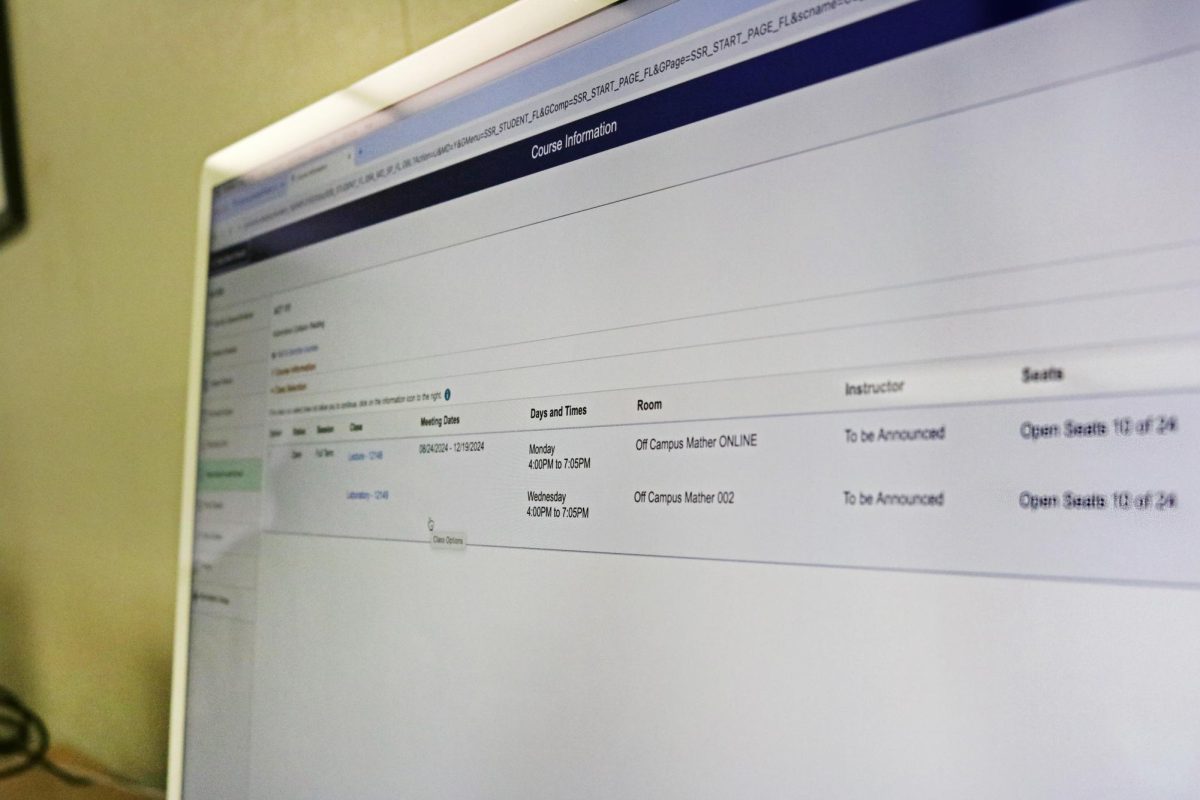One of American River College’s strategic goals that the administration launched in 2023, and maintained as a guiding policy until 2030, includes providing clear and effective pathways to success. In many circumstances, those pathways are readily accessible for most students. Yet for students that may suffer from academic difficulties such as learning disabilities, such pathways may not be as clear, nor as effective. The abrupt manner in which administrative changes have occurred at ARC has had a detrimental effect on ARC’s more vulnerable students. Such events include the abrupt closure of Davies Hall in the first weeks of the fall 2023 semester, and more recently, the absolvement of the specialized tutoring program located in the Student Resource Center that occurred at the beginning of the fall 2024 semester.
The consistent throughline of these changes are the veiled and precipitated manner at which they are executed, which represents a blatant disregard toward the welfare of student’s educational pursuits. The conclusion that must be drawn from these examples is that clear communication must be prioritized before implementing drastic changes to ARC’s support mechanisms to ensure the institution meets students’ academic stability needs.
While the Davies Hall closure created instability for all students and faculty with classes and offices in the building, the elimination of the SRC tutoring program was particularly deleterious for disadvantaged students. It’s hard to fathom why such changes were deemed necessary. In previous semesters, SRC held a smaller tutoring program that catered to students involved with programs such as Disability Services and Program for Students, Extended Opportunity Programs and Services and the TRIO programs. These programs are specifically designed to support students that may be at a disadvantage from an educational perspective, such as those that deal with learning disabilities. The tutoring program in the SRC offered personalized support to students facing academic challenges, tailoring assistance to their learning styles while recognizing how these challenges might hinder traditional learning.
When the fall 2024 semester started and the SRC was moved into the Learning Resource Center, this specialized tutoring program was absorbed into the LRC tutoring program. While it may seem advantageous and efficient to house all tutoring programs under the same department, it was done with little explanation and even less transparency. This discreet yet huge decision left disadvantaged students feeling lost as to how to access specialized tutoring and ultimately had a negative impact on their learning.
Early in the fall 2024 semester, an Associated Student Senate meeting heard public comments from individuals who had attempted to use the SRC tutoring services, unaware that it had recently been absorbed into LRC.
“[Students] were saying that the tutors there lost patience with them to the point that they’re screaming and that it made them cry,” said Kloi Ogans, chairperson of the Student Senate Tutoring Committee. “If students are crying because of that, we as ASB have to address this.”
Whatever this tutoring program provided, whether extended tutoring hours to support disadvantaged students or a sanctuary filled with empathetic individuals to assist students struggling to navigate the educational system, its absence dismantled the stability of these students’ academic progress.
Metasebia Gebru is one such example of this. As an Ethiopian-born working mother diagnosed with dyslexia, she has struggled in courses such as math. The tutoring program previously offered in the LRC for disabled students was a cornerstone of her academic success.
“That tutoring center is available for people who have challenges,” Gebru said. “I didn’t even know that place existed until I started working [there], which was a year ago.”
When Gebru spoke with her counselor over the summer leading into the fall 2024 academic semester, she was still referred by her counselor to the DSPS tutoring program—the same program Gebru had recommended to other DSPS students during their orientations.
It turns out that very few people, be it DSPS students or employees, had been made aware that this tutoring program had been absorbed into the main LRC tutoring program.
“They [DPSP staff] were just as surprised as I was. DSPS and TRIO and other programs were sending students to these tutors,” Gebru said. “Someone told me one of the students that used the tutoring had a nervous breakdown.”
Such allegations prove difficult to verify, as many people with learning disabilities often hesitate to discuss their condition publicly. Furthermore, making requests for accommodations with tutoring staff and disclosing a medically diagnosed learning disability to untrained personnel may feel insurmountable.
“When you talk about people with disabilities, especially learning disabilities, they are very reserved about speaking about something like that,” Gebru said.
The tutoring program that has since merged with the LRC tutoring center supports all students, as stated several times by David Miramontes-Quiñones during an interview with the Current. Since the beginning of the year, Miramontes-Quiñones has served as the dean of the Library Distance Education Program and the LRC, which includes tutoring and Beacon Supplemental Instruction program.
“We have tutoring for over 60 courses in the LRC this semester,” Miramontes-Quiñones said. “We do cover all of the high demand courses, like all of the math courses, all science courses, accounting and English.”
The LRC tutoring program is dedicated to supporting all students at ARC, he added, while also making tutoring a more central focus across the various curricula offered under the ARC banner.
“We created an embedded tutoring program this semester where (…) we got 15 sections of math and English. We then partner with counseling to let the counselors know, hey, we have embedded tutoring into these English and math classes,” Miramontes-Quiñones said. “They can funnel some of the students that need it the most into our sections with embedded tutoring. So, we got funding for that for next semester.”
These efforts do offer hope for students in the future. The ASB, LRC tutoring program and the administration have been actively hiring for open roles for the LRC tutoring program. However, these efforts ultimately fall short for disadvantaged students who have been left behind. Moreover, the leadership of the comprehensive LRC tutoring program appears unaware that the SRC tutoring program that disadvantaged students relied upon had even existed. When Miramontes-Quiñones was asked about the closure of the SRC tutoring program, it seemed as if the SRC tutoring program wasn’t absorbed into the LRC tutoring program, rather it appears that the SRC tutoring program had been eliminated outright with no immediate contingency plan made available.
“We don’t know how services were provided at the [Student Resource] center (…), but here we offer one hour to two hours of tutoring for our students if they request that,” Miramontes-Quiñones said. “We do have students who are DSPS. We don’t ask them, but we do provide accommodation.”
The ARC administration appears to be making efforts to keep up with the consequences of their sudden shift of resources, but those results don’t appear to have been present during the fall 2024 semester.
“To better serve all students equitably and maximize campus resources, a programmatic decision was made to transition tutoring services from EOP&S to the LRC,” Taylor Toledo, Public Information Officer with the Los Rios Community College District said in an email to the Current. “We are actively communicating with affected programs and working closely with program staff and students to ensure a smooth and supportive transition to expanded tutoring services as we prepare for Spring 2025.”
The administration went on to add that they have initiated conversations with the ASB tutoring committee to support DSPS, TRIO and EOP&S students. They have also ensured that partnerships with counselors and staff are in place to ensure referrals, pathways and relationships with LRC tutoring remain strong and responsive to student’s needs.
With funding for tutoring being syphoned away from disadvantaged students and redistributed to the overall student body under the veil of secrecy, it’s easy to see how students like Gebru could feel left out in the cold. Perhaps she could’ve been better prepared for the change if the decision had been communicated to the community, which had been unexpectedly left without the tutoring program they had come to rely on.
“I don’t know if this is relevant to anybody, but it’s important to me. Our family is going through a lot of situations, like a lot of death. Everybody was just like, thank God we have something (Gebru’s graduation) to celebrate,” Gebru said. “I don’t even know how to tell my daughter and my family I’m not going to graduate next May.”








